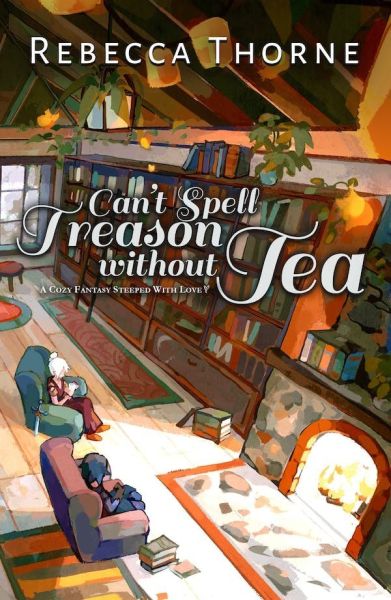james_davis_nicoll (![[personal profile]](https://www.dreamwidth.org/img/silk/identity/user.png) james_davis_nicoll) wrote2024-04-16 09:00 am
james_davis_nicoll) wrote2024-04-16 09:00 am
Entry tags:
Can’t Spell Treason Without Tea (Tomes & Tea, volume 1) by Rebecca Thorne

An underappreciated bodyguard casts her current career aside in favour of romance and small-town entrepreneurship, thus earning the incandescent fury of her absolute monarch ex-boss.
Can’t Spell Treason Without Tea (Tomes & Tea, volume 1) by Rebecca Thorne
no subject
no subject
no subject
That's sort of my thought. There were certainly bookstores before the late 19th Century - Hello, St. Paul's Churchyard - but the financial and social model when they are printed via formes set with movable type is emphatically not that of the modern-day bookstore where many middle-income buyers come in regularly to browse and pick up a new read. That's why Jane Austen's heroines use circulating libraries. (But Mr. Bennett, a gentleman with a respectable income and less popular tastes, buys his books ... probably from booksellers in London.)
Not having read the reviewed book, I am only guessing that it assumes a very mid-20th century model for the bookstore at a social level. Victoria Goddard's Greenwing and Dart series certainly does, in an otherwise Regency world, and it sets my teeth on edge.
no subject
no subject
Whence the (almost unreadable) British Railway Shakespeare, set in something like two-point type...
no subject
(Anonymous) 2024-04-18 02:07 am (UTC)(link)-Awesome Aud
no subject
(Anonymous) 2024-04-18 11:49 am (UTC)(link)no subject
In fact, translating James Lackington and "The Temple of the Muses (the predecessor to modern bookstores(, who scandalized his letters by offering *gasp* fixed prices for books would make for a fine cozy fantasy. Pity this book isn't it.